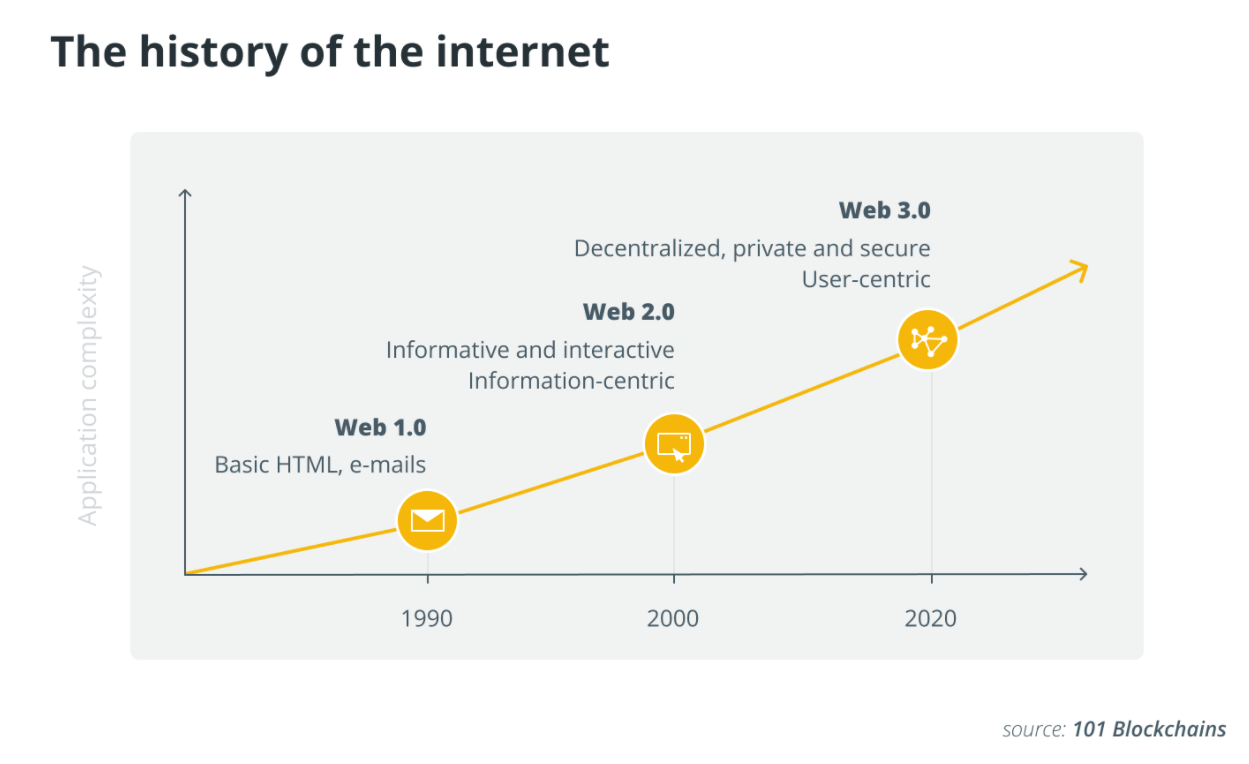Apple ATT, a Harbinger of the Web3 Era
A glimpse into the future for user privacy and marketing
It’s been about a year since Apple rolled out App Tracking Transparency (ATT) on iOS, which gives users the control to opt into tracking through the identifier for advertisers (IDFA). In the intervening year, the advertising ecosystem has struggled and the challenges are not going away. Google recently announced similar changes for Android. These moves, beginning with ATT, have strengthened user privacy and are a harbinger of the coming Web3 era for marketers.
Web 2.0 was the Social Web. My generation rushed into adulthood, eager to share every aspect of our lives with the world from pictures of our food to what we’re up to on a Friday night. At the same time that we grew addicted to Likes, we grew addicted to using social networking tools for “free”. In truth, we gave the platform our data in return, which was then stored on the platform’s private data stores and monetized through advertising inventory sold to marketers.
Our data was a dream for marketers. Not only could they reach an audience, but they could reach hyper-targeted audiences. If research showed that a women’s deodorant worked particularly well for single women whose favorite song is “Roar” by Katy Perry, then they could run a campaign targeted to that very group. Social ads were very efficient and made it possible for many Direct to Consumer (DTC) brands to spring to life.
Then came along the data breaches… the Cambridge Analytica scandal… the election disinformation… and the Facebook whistleblower’s Congressional testimony. These incidents made us collectively wake up to the vast amount of information about us that lies in the hands of others and can be manipulated against us. People woke up to wanting more privacy.
When Apple introduced ATT, it created a huge ripple effect with Meta. Without the precise audience hyper-targeting that Meta offers, brands have seen a huge decrease in the efficiency of their paid social ads and responded to dropping return on ad spend (ROAS) by pulling back on budgets. The company reported in February that they would take a $10 billion revenue hit in 2022 due to the change.
But maybe all Apple has done is to help us see the future. We’re currently in the Web 2.0 era but moving closer each day to Web 3.0. By rolling out App Tracking Transparency, it forced us to contemplate a world in which data is not free flowing.
In Web3, a platform will not own your data. You will own your data. Web3 will put individuals in control of their data, via distributed personal data stores. And even though transactions on the blockchain are, by design, are visible to everyone, your identity is not known because transaction data is separated from your personally identifiable information (PII). It’s like having a record of your web browsing behavior on your iPhone without your IDFA to track it back to you.
Apple ATT has helped prepare us for the Web3 era. It has served as a harbinger of Web3, a future when data will no longer be the monetizable value that companies get from their free users. Seeing the future now allows us to start thinking through the questions of the next era. What will marketing look like in the Web3 world? How will business models evolve? My hope is that Web3 brings about a renewed focus on serving customers. In Web2, acquiring new customers was as cheap and easy as buying a purse from H&M. In Web3, your existing customers will be Birkin bags - high quality, hard to come by, and worthy of nurture.
🗞️ Subscribe to my newsletter
I write about once a week about topics like product management, design thinking, becoming a better leader, and personal branding. By subscribing to my newsletter, you’ll get these insights emailed right to your inbox every time I post.
📹 Reflect with me on Friday Flashes
Friday Flashes is a series of quick one-minute videos that introduces a topic of reflection for the week. Each prompt is product-focused and ties back to one of the ten disciplines in the Product Decagon.
📖 Get your copy of The Productive Product Manager
The Productive Product Manager is a guided journal that combines the weekly reflection with weekly review and other goodies. You can see the inside of the journal in the Friday Flashes announcement video. Don't worry - the journal is not dated, so it's ok if you don't start at Week 1.


